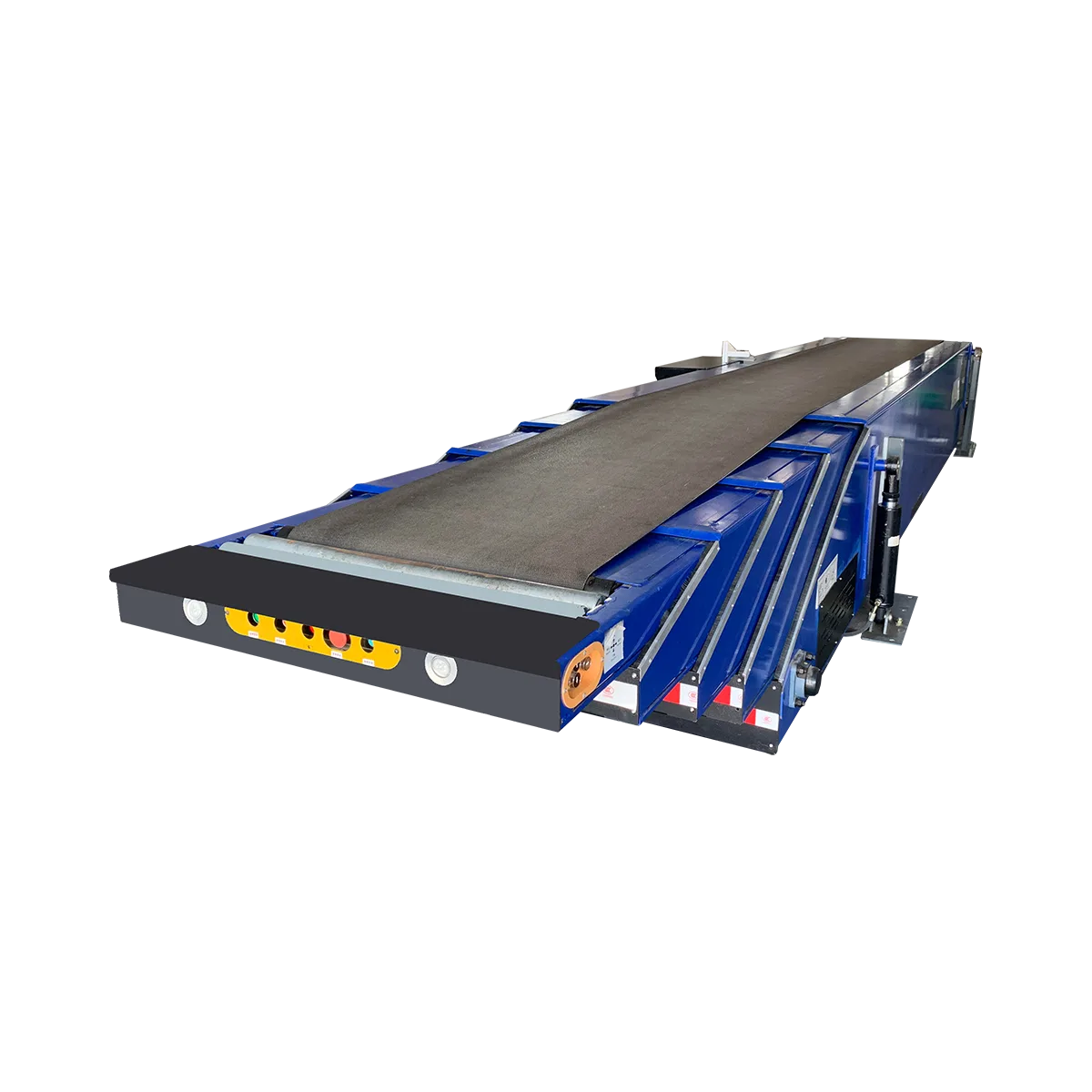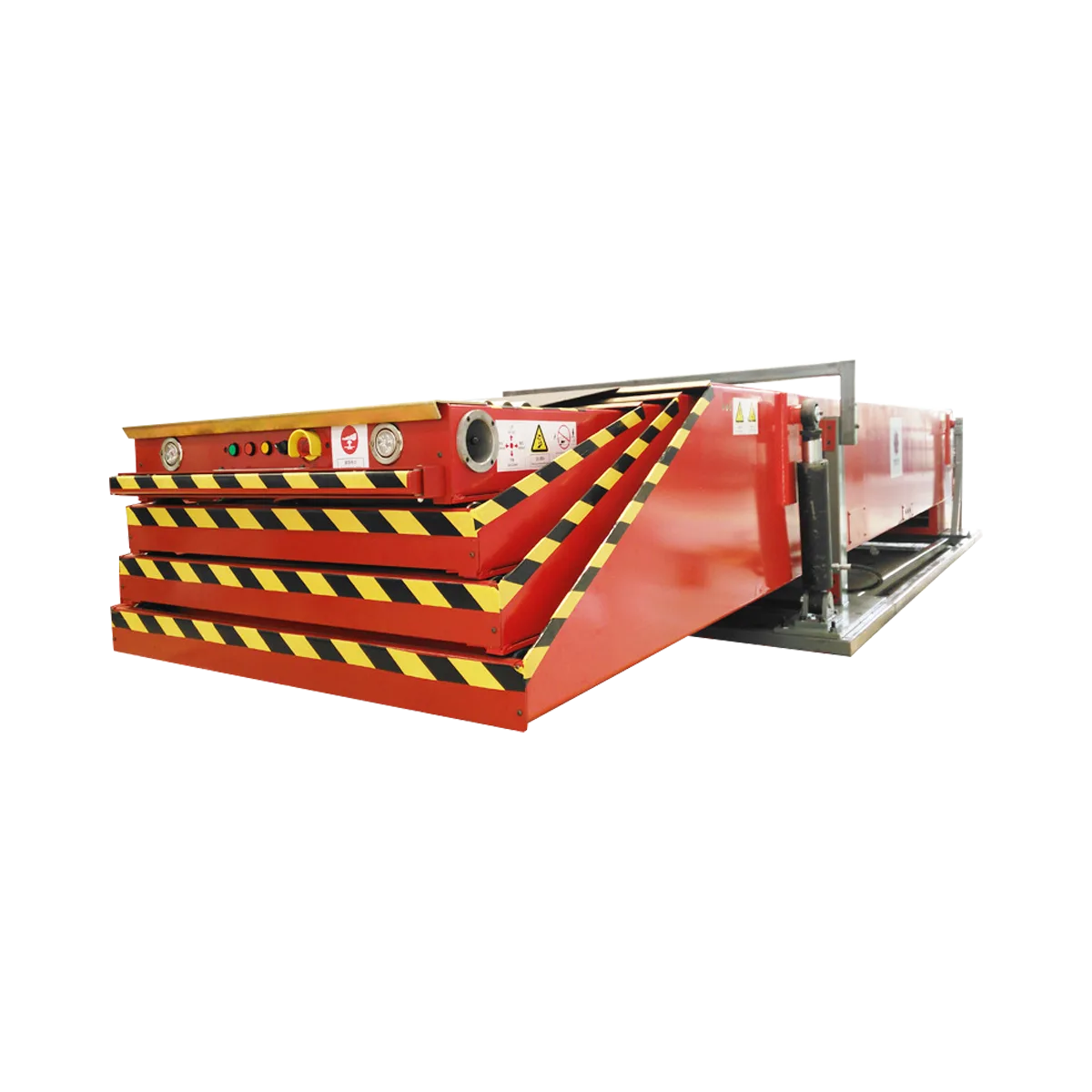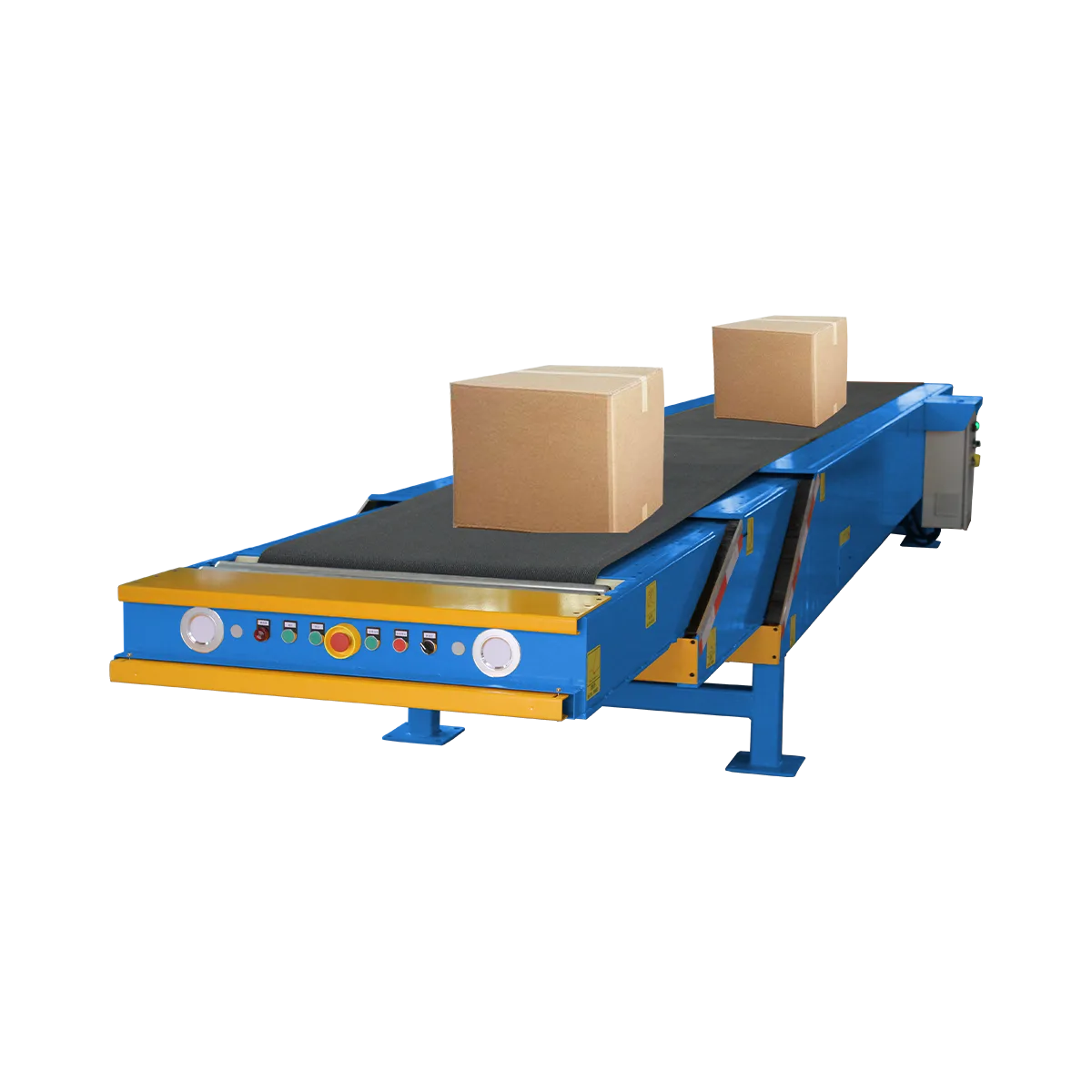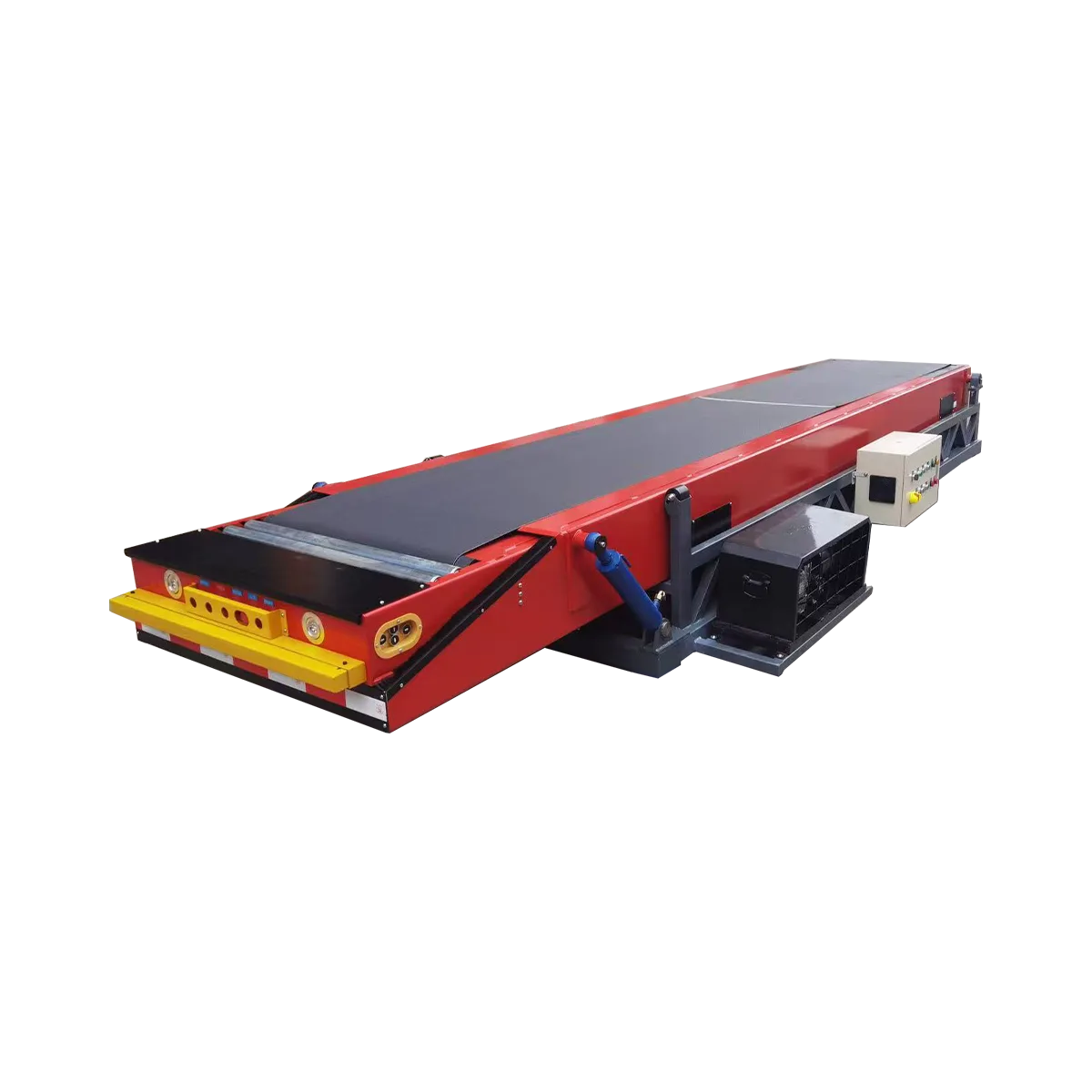Telescopic Conveyor Belt and Telescoping Conveyor Systems
This article explores the features, benefits, and practical applications of telescoping conveyors, specifically for loading and unloading cargo, and highlights how these systems can improve your operations.
Related Products
- TeleScopic Conveyor – 5 SectionsCollapsed LengthExtended LengthLoad Capacity
60 kg/m
Applicable GoodsFlat-bottomed Goods
Bagged Goods
- TeleScopic Conveyor – 4 SectionsCollapsed LengthExtended LengthLoad Capacity
60 kg/m
Applicable GoodsFlat-bottomed Goods
Bagged Goods
- TeleScopic Conveyor – 3 SectionsCollapsed LengthExtended LengthLoad Capacity
60 kg/m
Applicable GoodsFlat-bottomed Goods
Bagged Goods
- TeleScopic Conveyor – 2 SectionsCollapsed LengthExtended LengthLoad Capacity
60 kg/m
Applicable GoodsFlat-bottomed Goods
Bagged Goods
In today’s fast-paced logistics industry, efficiency is paramount. Telescoping conveyor systems and telescoping belt conveyors are essential for ensuring smooth and quick material handling in large-scale operations. These systems, which extend and retract to suit varying loading and unloading needs, are particularly valuable in environments with significant traffic and heavy loads, such as warehouses, distribution centers, and manufacturing plants. This article explores the features, benefits, and practical applications of telescoping conveyors, specifically for loading and unloading cargo, and highlights how these systems can improve your operations.
What is a Telescoping Conveyor System?
A telescoping conveyor system is a highly flexible conveyor that can extend and retract based on the needs of your operation. These systems are ideal for loading and unloading goods from trucks and are especially useful for companies with unloading platforms. The adjustable length makes them perfect for accommodating trucks of different sizes, ensuring efficient material transfer from trucks into storage or sorting areas.
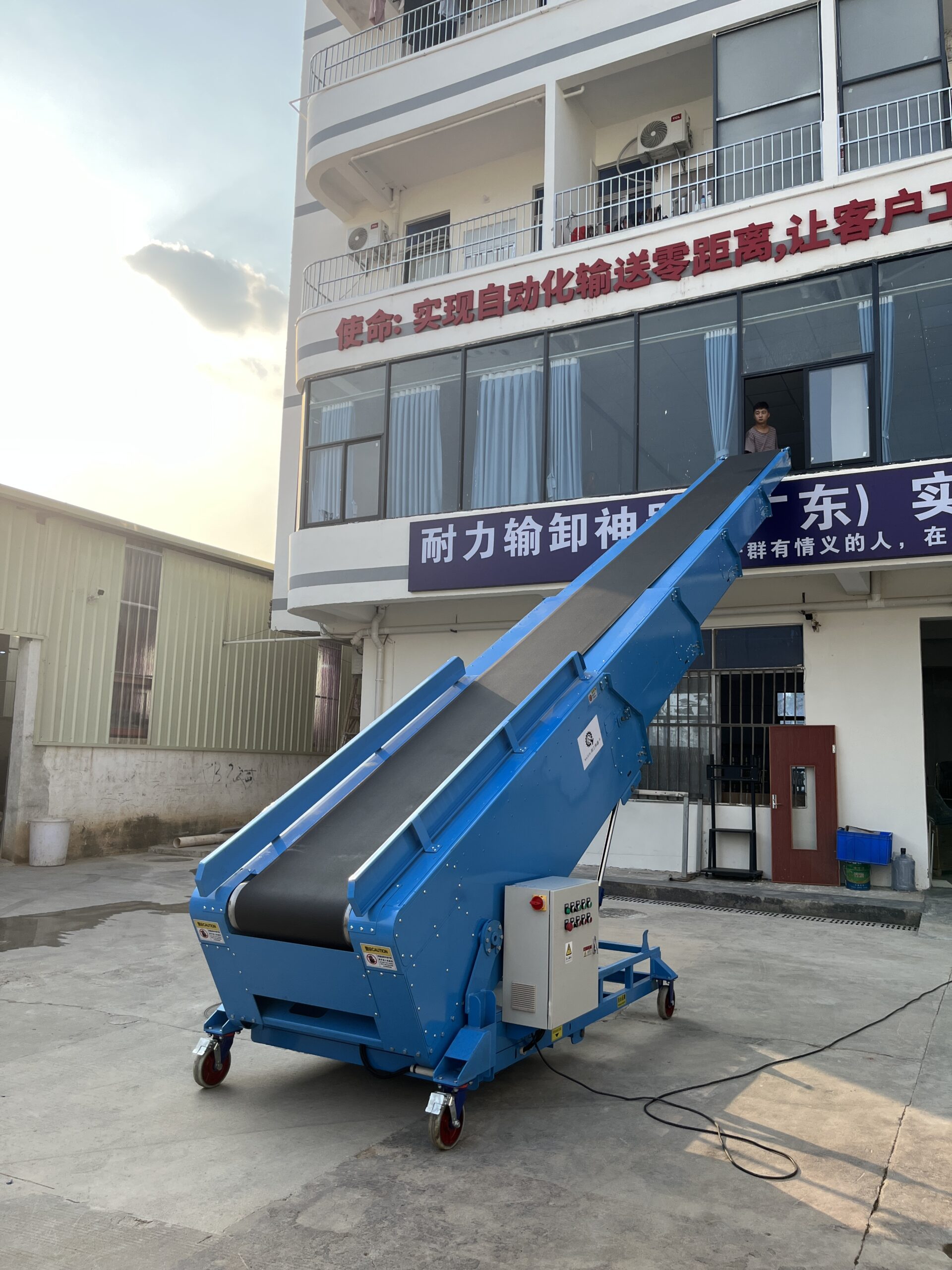

For large-scale logistics operations, where space optimization is crucial, telescoping conveyor systems are typically fixed in unloading zones. Their ability to extend to reach trucks, coupled with their robust design, makes them invaluable for handling bulkier or heavier materials efficiently.
Key Features of Telescoping Belt Conveyors
A telescoping belt conveyor combines the flexibility of telescoping systems with the durability of a belt conveyor, making it suitable for a wide range of loading and unloading needs. Here’s what makes them stand out:
| Feature | Description |
| Adjustable Length | Can extend or retract to match truck sizes, allowing for seamless loading and unloading operations. |
| Heavy-Duty Design | Built to handle heavy loads (up to 80 kg/m²), making them ideal for larger items during loading and unloading. |
| Space-Efficient | The retractable design ensures that these conveyors do not take up unnecessary space when not in use. |
| Smooth Operation | Designed for continuous and smooth movement of goods, ensuring products are handled carefully during transport. |
| Easy Integration | Easily integrates into existing systems without requiring significant layout changes, enhancing overall material handling. |
Why Choose Telescoping Conveyor Systems?
Telescoping conveyor systems are designed to address the specific needs of businesses requiring flexible and efficient loading and unloading solutions. Their major benefits include:
- Space Efficiency: Since telescoping conveyor systems are typically fixed in unloading areas, they offer significant space-saving advantages when retracted, making them an excellent choice for companies with limited floor space.
- Adaptability for Different Truck Sizes: These systems extend to the required length to accommodate various truck sizes, ensuring smooth material handling.
- Increased Productivity: With the ability to quickly adjust to different lengths, telescoping conveyor systems significantly reduce loading and unloading times, improving warehouse efficiency and throughput.
- Cost-Effective: By reducing manual labor and decreasing the time spent on unloading and loading trucks, companies can reduce operational costs and increase overall efficiency.
Applications of Telescoping Belt Conveyors
Telescoping belt conveyors are highly effective for loading and unloading cargo. These conveyors are designed specifically for operations that involve transferring goods from trucks to warehouses or sorting areas.
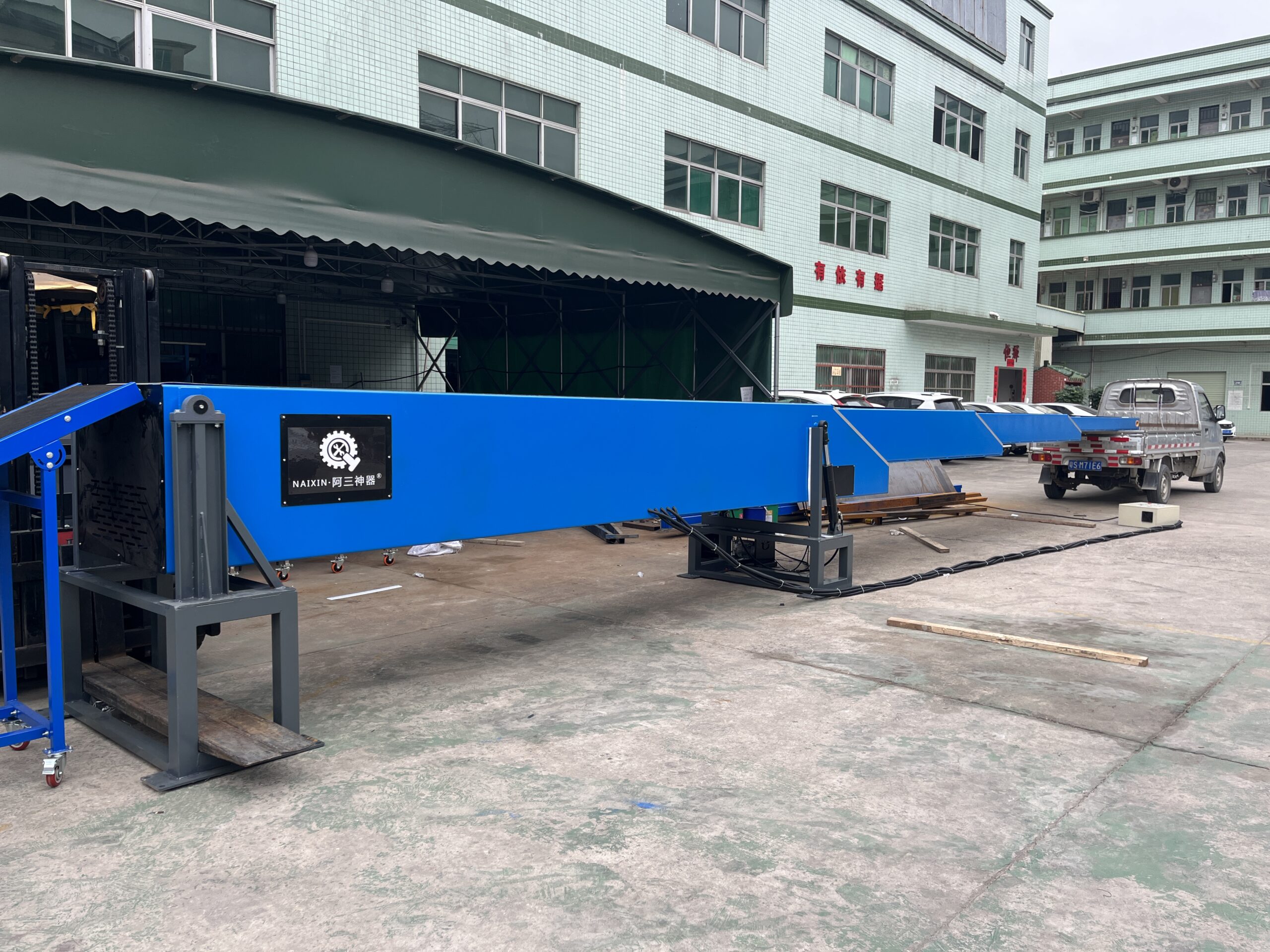

Some of the most common loading and unloading applications include:
- Truck Loading and Unloading: The extendable design of telescoping conveyor systems allows them to reach the entire length of the truck bed, facilitating the smooth transfer of goods during loading and unloading
- Warehouse Unloading: Telescoping conveyors provide an efficient way to unload goods from trucks directly into warehouse areas, ensuring a quick and safe transfer without the need for manual handling.
- Bulk Cargo Unloading: For industries handling bulk goods, telescoping conveyors streamline the process of unloading cargo, ensuring heavy or large items are quickly transferred from trucks to unloading zones.
- Sorting Areas: In unloading zones, telescoping conveyor systems efficiently move goods from trucks to sorting areas, making it easier to organize and manage materials during unloading.
What If You Don’t Have an Unloading Platform?
For companies that do not have dedicated unloading platforms, telescoping conveyor systems may not be the ideal choice.
Instead, a hydraulic conveyor paired with a roller conveyor can provide a more effective solution. These systems offer flexibility to handle goods without the need for a fixed unloading area, making them a versatile and efficient alternative for businesses with different operational layouts.
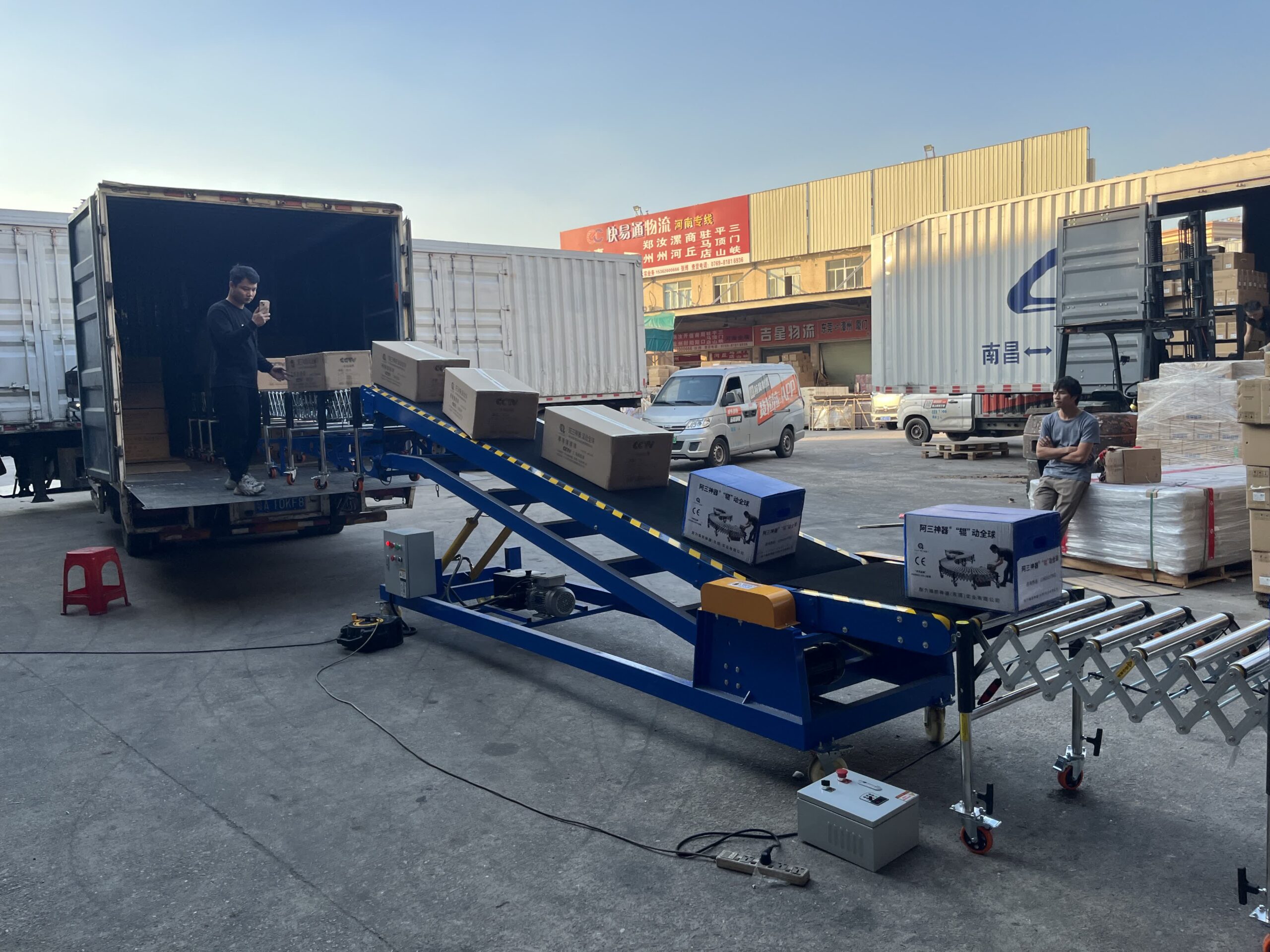

How to Choose the Right Telescoping Conveyor for Your Needs
When selecting a telescoping conveyor system for your loading and unloading operations, it’s important to consider several factors:
| Consideration | What to Look For |
| Load Capacity | Choose a conveyor that can handle the weight of the materials you need to move, with options for handling up to 80 kg/m². |
| Extension Length | Ensure the conveyor can extend enough to reach trucks or storage areas and retract efficiently when not in use. |
| Belt Material | Choose a belt material that suits the type of materials being handled (e.g., rubber for bulkier items, PVC for lighter goods). |
| Space Considerations | If your operation lacks a dedicated unloading platform, consider using a hydraulic conveyor and roller conveyor combination for added flexibility. |
| Speed Requirements | Ensure the conveyor’s motor speed can meet your operational speed, typically adjustable between 10-40 m/min for optimal performance. |
FAQ
What is a telescoping conveyor system?
A telescoping conveyor system is a flexible conveyor that can extend and retract, making it ideal for loading and unloading goods from trucks.
What industries benefit from telescoping belt conveyors?
Industries including logistics, manufacturing, warehousing, and those handlingbulk goodsorpackaging benefit from telescoping belt conveyors.
Can I use a telescoping conveyor if I don’t have an unloading platform?
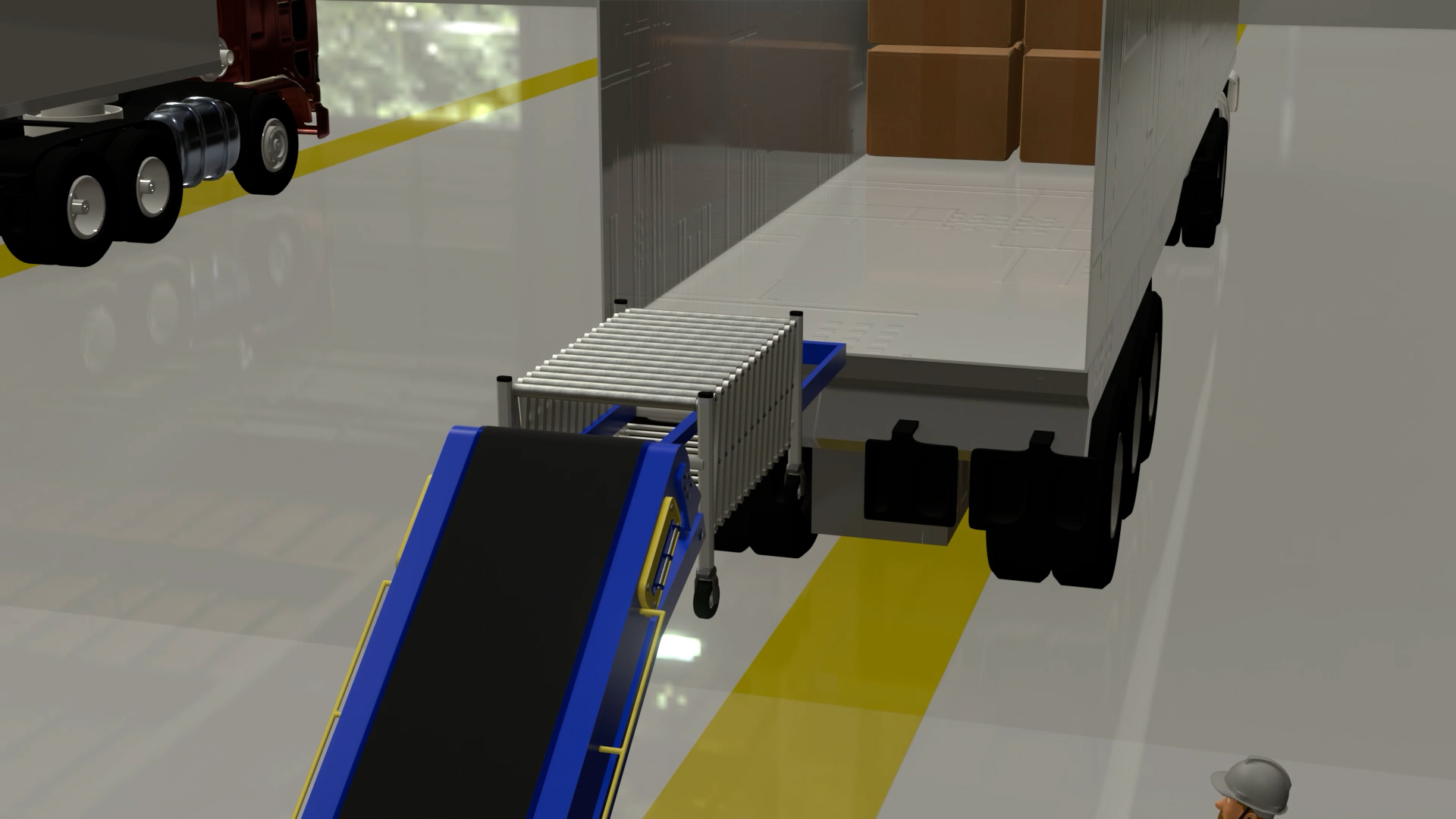

If your facility lacks an unloading platform, hydraulic conveyors paired with roller conveyors offer a flexible alternative to telescoping conveyor systems.
How do telescoping conveyors save space?
Telescoping conveyors retract when not in use, freeing up valuable floor space, which is particularly useful in smaller facilities.
How do I maintain a telescoping conveyor system?
Regular maintenance includes checking belts for wear, lubricating moving parts, and ensuring safety features like emergency stops are functioning properly.
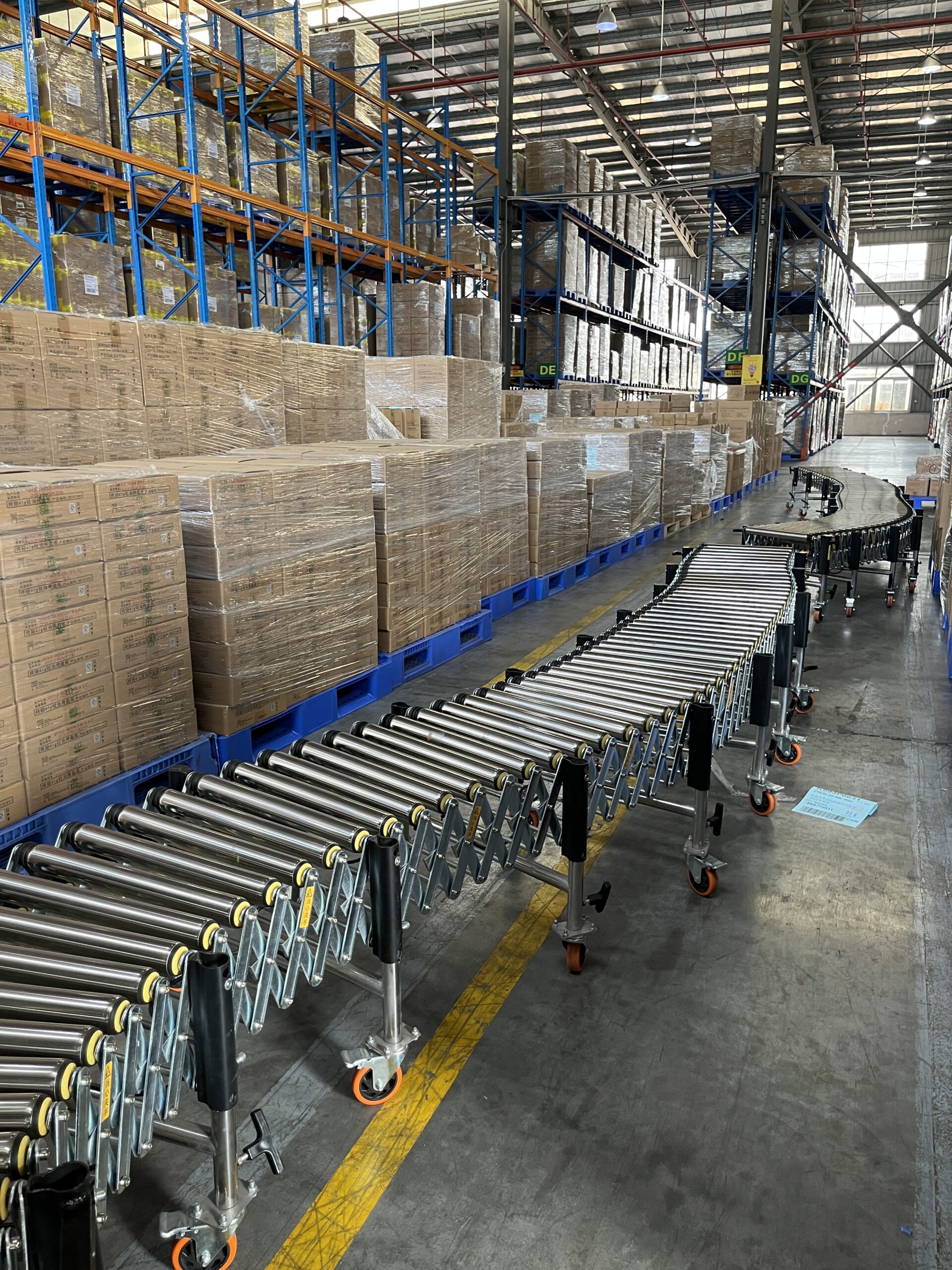

Table of Contents
Recent Posts
Optimize hardware store logistics with the right building supply conveyor systems. Our guide to tool distribution systems enhances retail warehouse automation for efficient operations.
Optimize your medical supply logistics with efficient gravity conveyor systems. Learn how to safely handle healthcare products while improving your hospital supply chain operations.
Discover how a sports equipment conveyor system can streamline your athletic gear logistics. Flexible conveyor solutions for all shapes and sizes of sporting goods.

